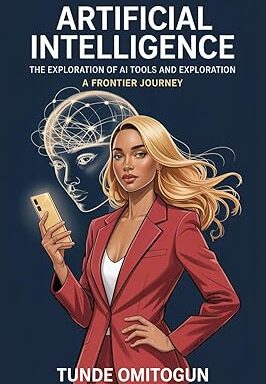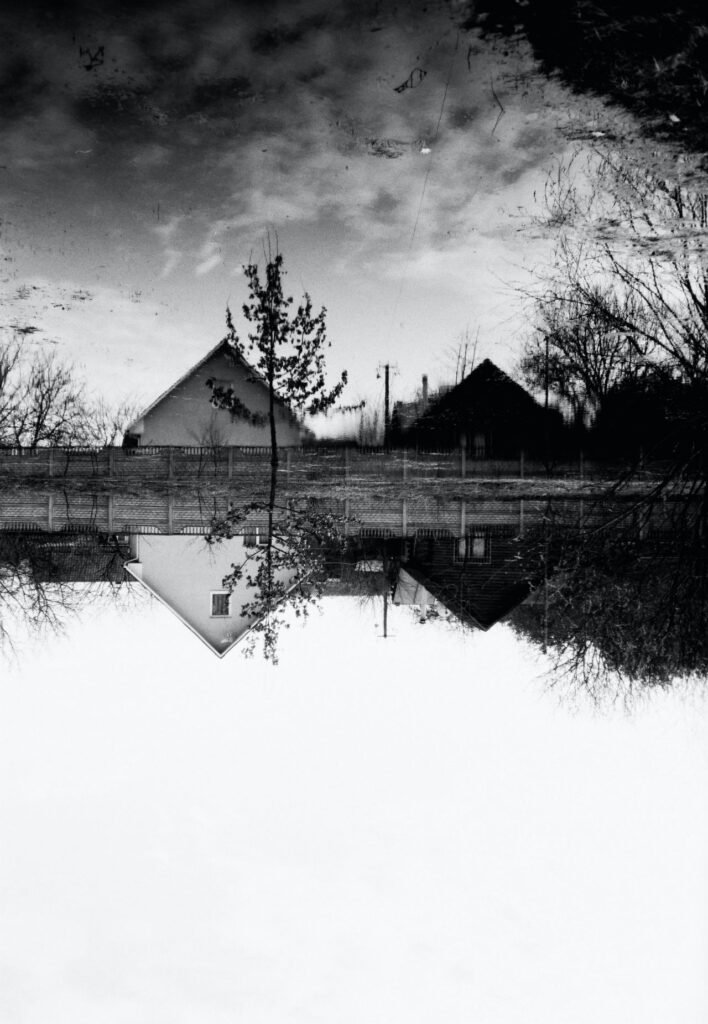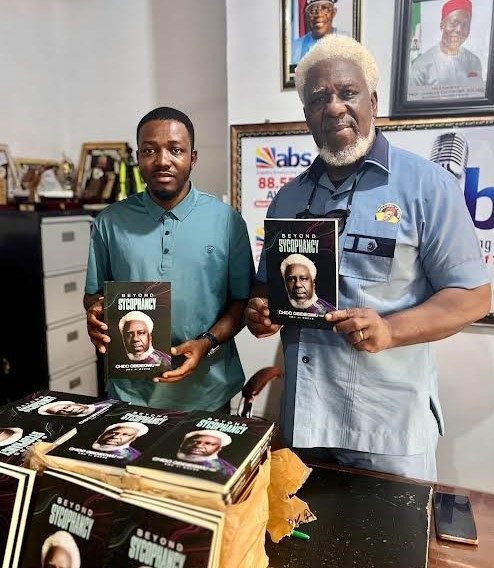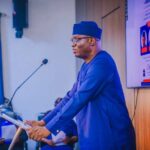
On December 2, 2024, Nigerians will converge at the main auditorium of the National Universities Commission for the public presentation of Senator Chris Anyanwu’s autobiography, Bold Leap.
To be sure, this is her third book. She wrote the first, The Law Makers, Federal Republic of Nigeria, while she was NTA correspondent at the National Assembly in the Second Republic. The second, The Days of Terror, came after her release from General Sani Abacha’s gulag in 1998.
But Bold Leap is significantly different and, no doubt, will stir up the hornets’ nest for the very reason that she pulled no punches in the 612-page tome.
An autobiography can be tricky because of the tendency of the author to remember only what is convenient, which most times creates the faux pas of presenting opinions as facts. But Bold Leap is refreshingly different because the author remembered everything, and left out no details no matter how inconvenient. That makes the book truly “an inspirational story of a woman of exceptional talent and indomitable spirit.”
Born on October 28, 1951, nine years before Nigeria’s independence, the frightening life trajectory of C-Gal, as she was fondly called, encapsulates Nigeria’s story. Like many other Igbo children her age, the years of innocence and comfort of her upper middle class family were brusquely shattered in the late 1960s when Nigeria decelerated to the Hobbesian state of nature, and life suddenly became “solitary, poor, nasty, brutish, and short.”
Her father, Hon. Nicholas Diala Ukah, popularly called N.D. Ukah, who started off as a primary school teacher after passing the First School Leaving Certificate Examination with distinction, quickly climbed the academic ladder, culminating in a University of London degree in British Economic History.
In the late 1940s, he joined the National Council of Nigeria and Cameroons (NCNC), and just as he did in academia, he also rose rapidly in politics – first Council Chairman for Mbaise District Council and in 1959, he won election to represent Owerri North-East Federal constituency in the House of Representatives.
Then the fratricidal war broke and her blissful world vanished. She was already at the reputable Owerri Girls Secondary School, comely and elegant, with the world at her feet, when the mayhem ensued.
Even when the guns were silenced, nothing was ever the same again. She and her younger sisters lived in the bush for nearly a month to escape Nigerian soldiers who were going from door to door in search of girls to take away as war booty.
When eventually school resumed, the world as the hitherto tarry-eyed girls knew it had changed. “Draw the line. The civil war brought an end to life as it used to be. It was the end of innocence in my generation and the beginning of the harsh realities that began as overt and covert retribution for the secession of Biafra, retributions and realities which have persisted decades after the war till today,” she wrote.
But little did she realize that the worst was yet to come – the ultimate tragedy. Her father was arrested and taken to a detention camp in Port Harcourt where he was starved and brutalised for three months by the Nigerian Army for no reason other than that he was a member of the Federal House of Representatives.
“The ill-treatment at the camp obviously took a heavy toll on his health. He was looking very thin, unwell and quiet… During the detention, he developed kidney problems,” Chris wrote.
She recalled going to see him on his death bed at the Emekuku Hospital and still remembers his plea. “With tubes in his nose and mouth, all he could tell me was to go home and take care of my siblings. I have obeyed that injunction ever since.”
She had no choice. Her father was only 51 years when he died in August 1971, leaving behind 13 children, the eldest was Chris who was only 20 years and a widow, a fulltime housewife without any source of income.
“My dad’s death automatically turned me into head of the family working hand in hand with my mom,” she further stated.
Chris Anyanwu said she was told by “a former Inspector General of Police that the camp where they kept and starved my father and other leaders arrested at the end of the war was managed by Chief A.K. Horsfall, a Rivers State man who later became head of the National Intelligence Service.”
After supervising the liquidation of her innocent father, the same forces seized his properties in Port Harcourt and not even the pitiable condition of their late friend’s widow could convince them to let go even when she came begging.
Chris Anyanwu writes about these gross injustices without bitterness. And the perspicacious former President Olusegun Obasanjo, her mate at Jos Prisons, applauds: “Chris was able to render otherwise tear-inducing details in a manner that removed the sting from the bitter experience to allow the reader enjoy accounts of unfair experiences without the revulsion that such stories ordinarily should have elicited.”
But, come to think of it, why should she be bitter when, despite all odds, she is a real “walking miracle” whose life has been so blessed and full of richness?
Bold Leap is a breath-taking chronicle of her enthralling life experiences. Obasanjo said if he was to propose an alternative title for the book, he would have called it “Triumph of Courage.” This is an incredible story of a woman with a never-say-die spirit.
Hers is a charmed life. She became an idol at the NTA where she was National Assembly, Diplomatic and OPEC correspondent. About eight years into her phenomenal career, she went to her home state of Imo to serve as Commissioner for Information. She later became the publisher and Editor-in-Chief of The Sunday Magazine (TSM), a weekly newsmagazine. Today, she owns a chain of radio stations – Hot FM.
Not even the three-year incarceration on the trumped-up charge of “accessory after the fact of treason” at Kirikiri, Jos, Gombe and Kaduna Prisons could break her spirit. Before Abacha suddenly dropped dead on June 8, 1998, the government had castrated her economically but there is no killing the beetle. Like the phoenix, she rose from the ashes of despair.
Bold Leap is the life story of a phenomenal go-getter, who plunged headlong into the murky waters of Nigerian politics and came out triumphant, serving two terms as a senator. In the Senate she scored a treble first – first senator to be elected on the platform of a small regional party (APGA), first female elected to the Senate from Imo State and first senator from the State to be re-elected. In her first term she served as vice chairman of the Senate Committee for Defence and Army and in her second term she was the chairman, Committee on Navy.
The account of her political odyssey in Imo State will generate enough heat in the coming days, no doubt. But the book is a treasure-trove on Nigerian politics.
“Everything is bought. You buy votes to be nominated. You buy votes to be elected to office. And then you must pay to defend yourself from frivolous court cases and bad judgments. It is an all-round corrupting, wearying and spirit-crushing experience,” she explains.
Bold Leap is the story of the grit of a young woman who rather than allowing the tragedy of her father’s untimely death derail her, soldiered on, first by acquiring solid education from choice U.S. universities and coming back home to build a fairytale career in journalism.
The book chronicles major socio-economic and political developments in the country in the last four decades and the major players. Chris Anyanwu had a relationship with most, if not all of them, which makes her one of the most consequential Nigerian journalists, ever.
But the book is not only about Chris Anyanwu and her incredible exploits in journalism and politics. It is also about Nigeria. She hinted that in a short note she sent to me: “Appendix 1 – 2, etc. is a goldmine. I would like you to go through and possibly ask: what is it about? Why?”
The two appendixes dealt with the lingering National Question. On February 22, 1994, Dim Chukwuemeka Odumegwu-Odumegwu, Ikemba Nnewi, delivered the second TSM Diamond Lecture – “Nigeria: The truths which are self-evident.”
Ever charismatic, Ojukwu brought the roof down, literally. In the March 6, 1994 edition of TSM, Chris Anyanwu wrote: “As he spoke, many cried. Young people, old people, they all had tears in their eyes. I see this picture of Chuba Okadigbo raising his horse whip in the air, his face overtaken by excitement and in the foreground a vastness of people hanging both hands in the air.”
What did Ojukwu say? “Nigeria is sick. It is our duty, each and everyone one of us, to help cure it.”
According to Ikemba Nnewi, the country was sick because “the sovereign people of Nigeria have never succeeded in designing for themselves their own society.” The implication he further elucidated was that, “Nigeria cannot be a nation unless its fundamental law is articulated and is accepted by Nigerians for universal application.”
It is pertinent to quote Ojukwu’s speech in some detail: “For those who enjoy the executive control of Nigeria, for those who enjoy almost exclusively the resources of this country, the term “One Nigeria” is like music to their ears. They love it, they want it to remain forever and if it is necessary to maintain One Nigeria by force, they would do so. If it became necessary to hold their partners in the Nigerian enterprise hostage, indeed captive in the corporation, all the better. For fear of being misunderstood or misrepresented, let me repeat. One Nigeria is a good idea but my objection lies in the idea that One Nigeria cannot and must not be questioned.”
Thirty years thence, Nigeria is still at the crossroads. By including Ojukwu’s speech in the Bold Leap, Senator Chris Anyanwu is simply pointing Nigerians to where the rain started beating them, a proof of her continuing service to the fatherland. It is one book that Nigerians who seek knowledge must read!
AMAECHI is the publisher of TheNiche.



























